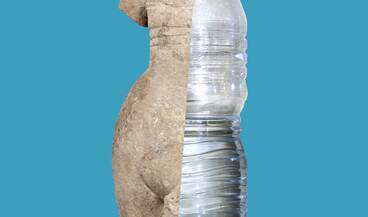Today
closed
closed
Tuesday till Sunday 10:00 - 17:00
Monday closed
Christmas Today closed
St. Stephen´s Day 26.12.2025 10:00 - 17:00
New Year´s Eve 31.12.2025 10:00 - 14:00
New Year´s Day 01.01.2026 closed
Saint Berchtold 02.01.2026 10:00 - 17:00
Epiphany 06.01.2026 10:00 - 17:00
Carnival Thursday 12.02.2026 10:00 - 17:00
Carnival Monday 16.02.2026 closed
Shrove Tuesday 17.02.2026 10:00 - 17:00
Saint Joseph 19.03.2026 10:00 - 17:00
Good Friday 03.04.2026 closed
Easter 05.04.2026 10:00 - 17:00
Easter Monday 06.04.2026 10:00 - 17:00
Labour Day 01.05.2026 10:00 - 17:00
Mother´s Day 10.05.2026 10:00 - 17:00
Ascension Day 14.05.2026 10:00 - 17:00
Whitsun 24.05.2026 10:00 - 17:00
Whit Monday 25.05.2026 10:00 - 17:00
Corpus Christi 04.06.2026 10:00 - 17:00
Swiss National Holiday 01.08.2026 10:00 - 17:00
Assumption Day 15.08.2026 10:00 - 17:00
accessibility.openinghours.special_opening_hours.link
Show allclosed
Tuesday till Sunday 10:00 - 17:00
Monday closed
Christmas Today closed
St. Stephen´s Day 26.12.2025 10:00 - 17:00
New Year´s Eve 31.12.2025 10:00 - 14:00
New Year´s Day 01.01.2026 closed
Saint Berchtold 02.01.2026 10:00 - 17:00
Epiphany 06.01.2026 10:00 - 17:00
Carnival Thursday 12.02.2026 10:00 - 17:00
Carnival Monday 16.02.2026 closed
Shrove Tuesday 17.02.2026 10:00 - 17:00
Saint Joseph 19.03.2026 10:00 - 17:00
Good Friday 03.04.2026 closed
Easter 05.04.2026 10:00 - 17:00
Easter Monday 06.04.2026 10:00 - 17:00
Labour Day 01.05.2026 10:00 - 17:00
Mother´s Day 10.05.2026 10:00 - 17:00
Ascension Day 14.05.2026 10:00 - 17:00
Whitsun 24.05.2026 10:00 - 17:00
Whit Monday 25.05.2026 10:00 - 17:00
Corpus Christi 04.06.2026 10:00 - 17:00
Swiss National Holiday 01.08.2026 10:00 - 17:00
Assumption Day 15.08.2026 10:00 - 17:00
accessibility.openinghours.special_opening_hours.link
Show allWorkshop
Kreislaufwirtschaft ist nicht nur ein Thema für grosse Firmen, sondern beginnt bei jedem Zuhause. Eine einfache Methode, um das Thema praktisch anzugehen, ist die 5R-Methode der ZeroWaste Bewegung, die den Fokus nicht auf Verzicht legt, sondern auf die Frage, was man wirklich braucht, was man reduzieren und was man optimieren kann.
Im Workshop von ZeroWaste Switzerland gibt es nach einer Einführung in die 5R-Methode viele praktische Tipps, wie unser Alltag mit umweltfreundlichen Alternativen aussehen kann. Diese sorgen nicht nur für eine Entlastung der Umwelt, sondern auch des eigenen Portemonnaies.
Mit ZeroWaste Switzerland
Das Ziel des Vereins ZeroWaste Switzerland ist die Sensibilisierung und Begleitung der Bevölkerung zur nachhaltigen Abfallreduktion. Zu seinen Aufgaben gehören insbesondere: die Abfallproblematik bekannt zu machen, Alternativen aufzuzeigen und für nachhaltige Verhaltensänderungen zu motivieren.
Zeughausstrasse 5
6430 Schwyz

Our throw-away and consumerist society is a recent phenomenon in the history of humanity. The way people handled materials and objects used to be driven by scarcity and shortages. Up until the Industrial Revolution in the late 18th century, it was normal to hand down clothes, repair tools, reuse building materials, melt down bronze objects to make new ones, and recycle glass containers. Whether they were made from fabric, metal, stone or glass – it was possible for all manner of things to have a second, third, or even infinite life. The exhibition takes a look at the methods of the circular economy past and present. Objects from the Stone Age to the present day show how their history can raise awareness of the value of things.